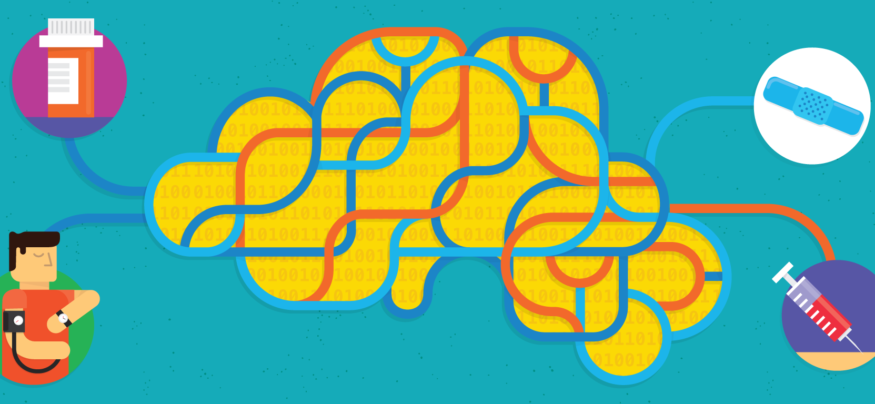Big data in healthcare can now be measured in exabytes, and every day more data is being thrown into the mix in the form of patient-generated information, wearables and EHR systems. Traditional methods of analysis are no longer enough to handle, let alone take proper advantage of, the potential that healthcare data holds. This is where deep machine learning (or simply, “deep learning”) comes in. However, its greatest power lies in its ability to extract value from data in ways that humans and traditional machine learning methods cannot.
Deep machine learning has applications in a number of healthcare areas.
Improving Hospital Care
Massachusetts General Hospital is a pioneer in implementing deep learning artificial intelligence. It announced in April that it would be using a deep learning supercomputer to help improve everything from detection and diagnosis to treatment and disease management. The award-winning hospital will train a deep neural network on its repository of phenotypic, genetic and imaging data.
Its system is currently housing close to 10 billion medical images which, through the use of AI, can now be used to compare a patient’s symptoms, tests and other data across populations of other patients to yield insights. The program is starting in radiology and pathology and will eventually expand into genomics and EHRs.
Results in the Pediatric ICU
The power of big data is also being harnessed to improve care in pediatric ICUs. Children in this department face particularly complex and challenging conditions including post-surgical care issues, sepsis, respiratory illnesses and trauma. At Children’s Hospital Los Angeles, data scientist David Ledbetter and his research team are using big data and 10 years’ worth of health records to better determine drug treatments for children. The end goal of the work, which is funded by the Laura P. and Leland K. Whittier Virtual Pediatric Intensive Care Unit, is the improvement of patient outcomes for some of the most vulnerable hospital visitors.
The deep learning models here were trained using nearly 13,000 “patient snapshots” created by Ledbetter’s team. The models were then used to predict probability of survival and in turn, physiology, through time. This gave the team a better understanding of the relationships between patient vitals and efforts made by ICU doctors and nurses, allowing clinicians to optimize their efforts and patient outcomes.
Tackling Alzheimer’s Disease
Alzheimer’s has proven to be one of the greatest challenges modern medicine faces, but there’s a chance this more sophisticated form of artificial intelligence might yield some answers.
The roots of deep machine learning have been around since the 1950s, but recently a team of collaborators from Harvard University, Massachusetts General Hospital and China’s Huazhong University of Science and Technology designed a program that helps detect the progression from mild cognitive impairment (MCI) to Alzheimer’s disease by combining fMRI brain scans and clinical data. The unpublished results were presented in May at the IEEE International Conference on Communications in Kuala Lumpur, Malaysia.
According to the researchers, traditional machine learning already had its shot at the problem, but was unsuccessful. Quanzheng Li, principal investigator from Massachusetts General Hospital’s Center for Clinical Data Science, commented on the difficulty of the challenge. “We try to find the disease at its very early stage. A lot of people try to use traditional machine learning to do this, but the result is not that great because it’s a very difficult problem to solve.”
While other researchers have challenged the outcome, the final results were almost accurate enough to be used in a clinical setting (that target falls at around 90 percent). Current methods of prediction fall at around 65 percent.
The Challenge for Facilities
The challenge for most healthcare institutions will be multifold.
These forms of artificial intelligence are developing quickly, but it’s still a new concept. It’ll be a while before hospitals can reliably determine whether their facility will benefit from applying deep learning models to their data and whether it’ll be worth the investment. Secondly, hospital IT managers will face challenges assessing their facility’s data and deciding whether deep learning is even an option for their situation. As we stand now, many facilities are just learning to harness the full benefits of their EHRs, and higher-level uses of that data are a long way off.
Regardless, staying on top of the technology and its potential applications as it develops will be essential for any IT manager or hospital administrator looking to move smoothly into an era of population health and value-based care.
Stay on top of the latest healthcare technology by checking out our full line of healthcare solutions here








